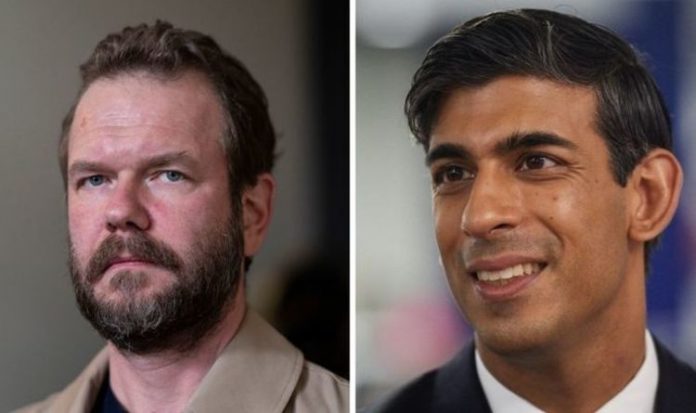Mr Sunak has come under intense scrutiny over whether the scheme helped contribute to the spread of coronavirus. In response to the accusation levelled at him during a Sky News interview this morning, Mr Sunak claimed “simplistic conclusions” cannot be made between the scheme and the virus. Following that, the LBC radio host said: “Do you think offering people cash incentives to pile en masse into places proven to carry a high risk of infection, against a backdrop of confused & confusing ‘guidance’, might have contributed to a surge in infections? Bit pishy, Rishi.”
Hitting back at the radio host, British Steakhouse, Hawksmoor London, took issue with James’ tweet.
Referencing his book, ‘How to be right in a world gone wrong’, the company noted the key theme of “passive-aggressive questioning is the key to being right”.
The steakhouse chain disputed his claim over the lack of social distancing measures in hospitality venues.
The restaurant chain also pointed to other reasons why there may have been a spike in cases.
In a long chain of tweets, they said: “Firstly there was no incentive to ‘pile en masse’ into venues.
“There was an incentive to help the socially-distanced hospitality industry and its 3m employees from going under.
“I don’t remember the bit in your book about sweeping over-exaggerations or misstatements of fact.
“Secondly hospitality venues don’t ‘carry a high risk of infection’.
JUST IN: Brexit LIVE: ‘Big progress’ in EU talks after ‘positive’ meetings
In defence of the Chancellor, the Prime Minister insisted the scheme was key in maintaining the hospitality sector and its two million jobs.
Mr Johnson also claimed, if the Government had not reopened the hospitality sector, many more jobs would have been lost.
He did also admit, a fine balance needed to be struck between kickstarting the economy and coping with the level of infections.
Some experts have also maintained there might have been a slight correlation between an increase in cases and the scheme.
Professor Calum Semple, a member of the Scientific Advisory Group for Emergencies (SAGE), suggested it may have had a small contribution.
Toby Phillips, a public policy researcher at Oxford University, also claimed there may been a small link to new cases and the scheme.
He also claimed it was impossible to know if the scheme was the true cause for the rise in positive cases.
He wrote on The Conversation website: “This isn’t to say that the scheme caused those cases.
“But it certainly didn’t discourage those people from going out.”







